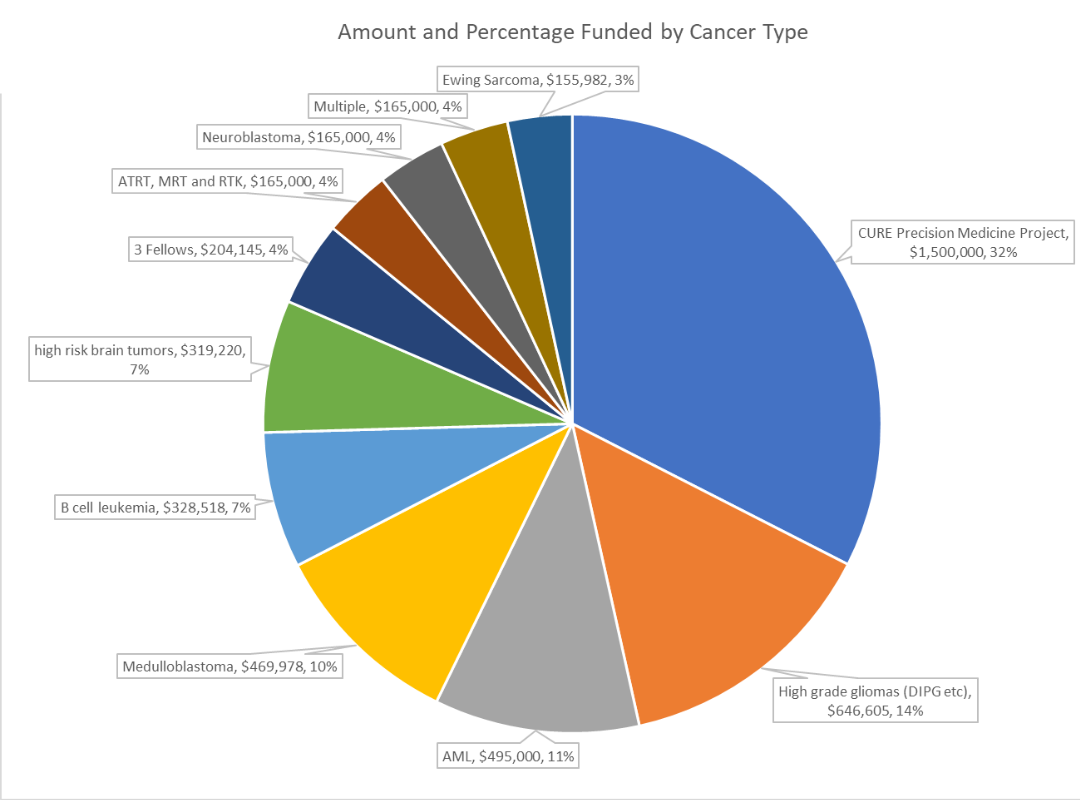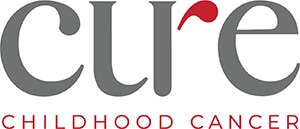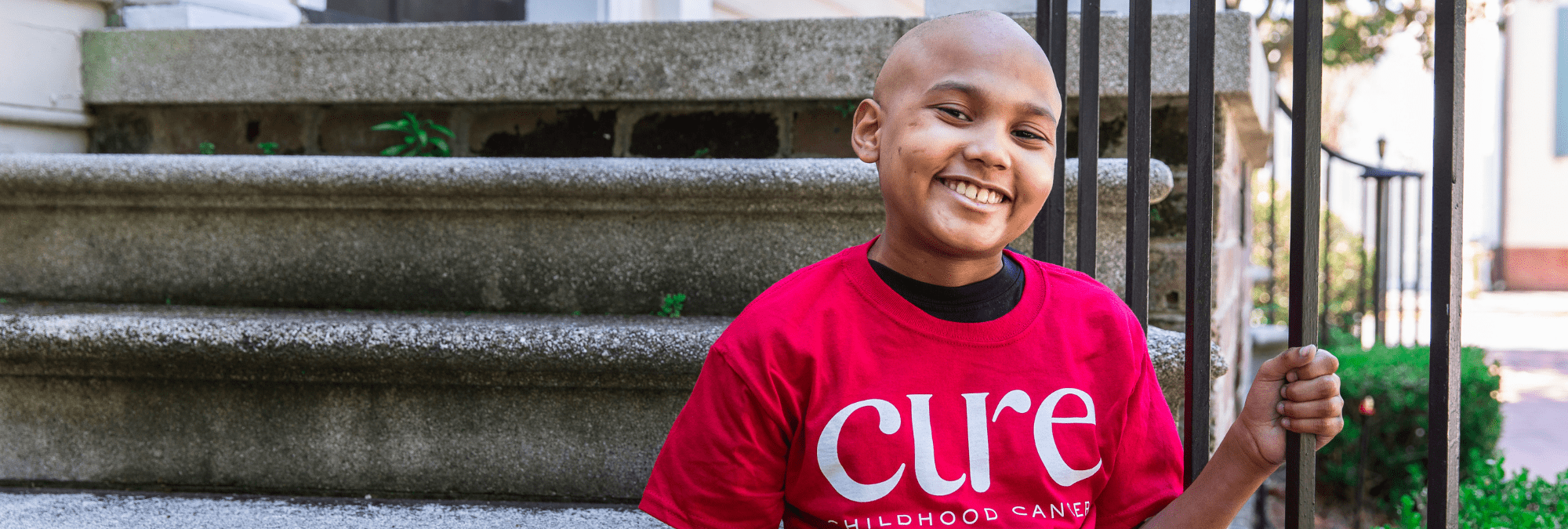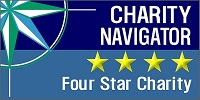CURE CHILDHOOD CANCER PROUDLY ANNOUNCES MORE THAN $4.7 MILLION IN RESEARCH GRANTS
Research is the key to ensuring children with cancer have the opportunity to thrive long beyond diagnosis. CURE’s research priorities are two-fold. First, we prioritize research that will lead to more effective treatments for children within two to three years. We also prioritize research aimed at solving recurrent and hard-to-treat cancers for which no effective treatment exists. Precision medicine, gene-based therapy, continues to be our highest priority, as we believe this approach to treatment shows extraordinary promise.
In response to CURE’s request for proposals, we received dozens of studies seeking funding. Expert oncologists and academic researchers reviewed and scored each proposal using the same process employed by the National Institutes of Health. Their scores and critiques guided CURE’s board, ensuring we invest funds in the most strategic and prudent fashion.
We are proud to share that our 2022 research grants are focused almost entirely on helping children facing the toughest diagnoses – high-grade brain tumors, aggressive leukemias and solid tumors, and metastatic disease. These 18 grants awarded to top scientists at leading pediatric cancer research institutions across the nation total more than $4.7 million, CURE’s highest disbursement in a single grant cycle in our 47 year history.
“We are so pleased and proud that CURE is providing such a high level of support to very promising research this year,” said Kristin Connor, CEO of CURE Childhood Cancer. “We are urgently focused on getting new treatments to those children with high-risk, difficult-to-treat cancers that currently lack effective treatments. Virtually all our grants this year are aimed at doing that, which gives me so much hope for these children.”
The grant includes funding for these difficult to treat cancers:
- 5 High-risk blood cancer studies (3 AML, 2 B-cell ALL)
- 7 High-grade brain tumor studies (3 DIPG, 1 high grade glioma, 3 medulloblastoma)
- 2 High-risk solid tumor studies (neuroblastoma and Ewing sarcoma)


In an effort to ensure the best and brightest young minds are trained to care for children with cancer and advance research, we also proudly announce our funding of the fellowship training of three pediatric oncology fellows at Emory University’s School of Medicine: Dr. Frank Chien, Dr. Robert Lisac (Sam Robb Fellow), and Dr. Sanyu Janardan (Connolly Family Fellow).
Our 2022 Pediatric Cancer Research Initiative includes the following studies:
Aflac Cancer and Blood Disorders Center at Children’s Healthcare of Atlanta
Aflac Precision Medicine Program
Robert Castellino, MD
Combined molecular targeting to enhance therapy for group 3 medulloblastoma
Tobey MacDonald, MD
Clinical investigation of cluster-wells in pediatric brain tumors
Christopher Porter, MD
Targeting mechanisms of T cell suppression mediated by Siglec15
Sunil Sudhir Raikar, MD
Optimizing gamma delta T-cell immunotherapy for acute myeloid leukemia
Renee Read, PhD
Human organoid models of pediatric high-grade gliomas
Muxiang Zhou, MD
Feasibility study of VERU-111 for precision treatment of pediatric AML
Beckman Research Institute of the City of Hope
Ling Li , PhD
Targeting PRMT1 elicits anti-tumor immunity in childhood leukemia
Qiang Lu, PhD
Developing inhibitors of mitotic kinesin KIF20A for brain tumor treatment
Children’s Hospital of Philadelphia
Michael Chorny, PhD
Macromolecular prodrug-based therapy for indolent neuroblastoma
Timothy Olson, MD, PhD
Targeting niche inflammation and MSC cell fate in monosomy 7 predisposition
Vinodh Pillai, MD, PhD
Assessment of bone marrow to predict response to CAR T-cell therapy
Indiana University
Jignesh Tailor, PhD
Discovery of synthetic lethal targets in MYCN neuroepithelial stem cells
Seattle Children’s Hospital
Elizabeth Lawlor, MD, PhD
Optimizing safety and efficacy of anthracyclines in Ewing sarcoma
University Hospitals Rainbow Babies & Children’s Hospital
John Letterio, MD
Development of a CNS-penetrant synthetic oleanane triterpenoid for DIPG
University of Texas Health Science Center at San Antonio
Raushan Kurmasheva, PhD
PEGylated talazoparib for pediatric malignant rhabdoid tumor therapy
Virginia Polytechnic Institute and State University
Jia-Ray Yu, PhD
Pharmacological screening of a new class of NSD1 inhibitor
Washington University in St. Louis
Jason Weber, PhD
Development of p14ARF-based therapies to treat CDKN2A-deficient pediatric cancers




